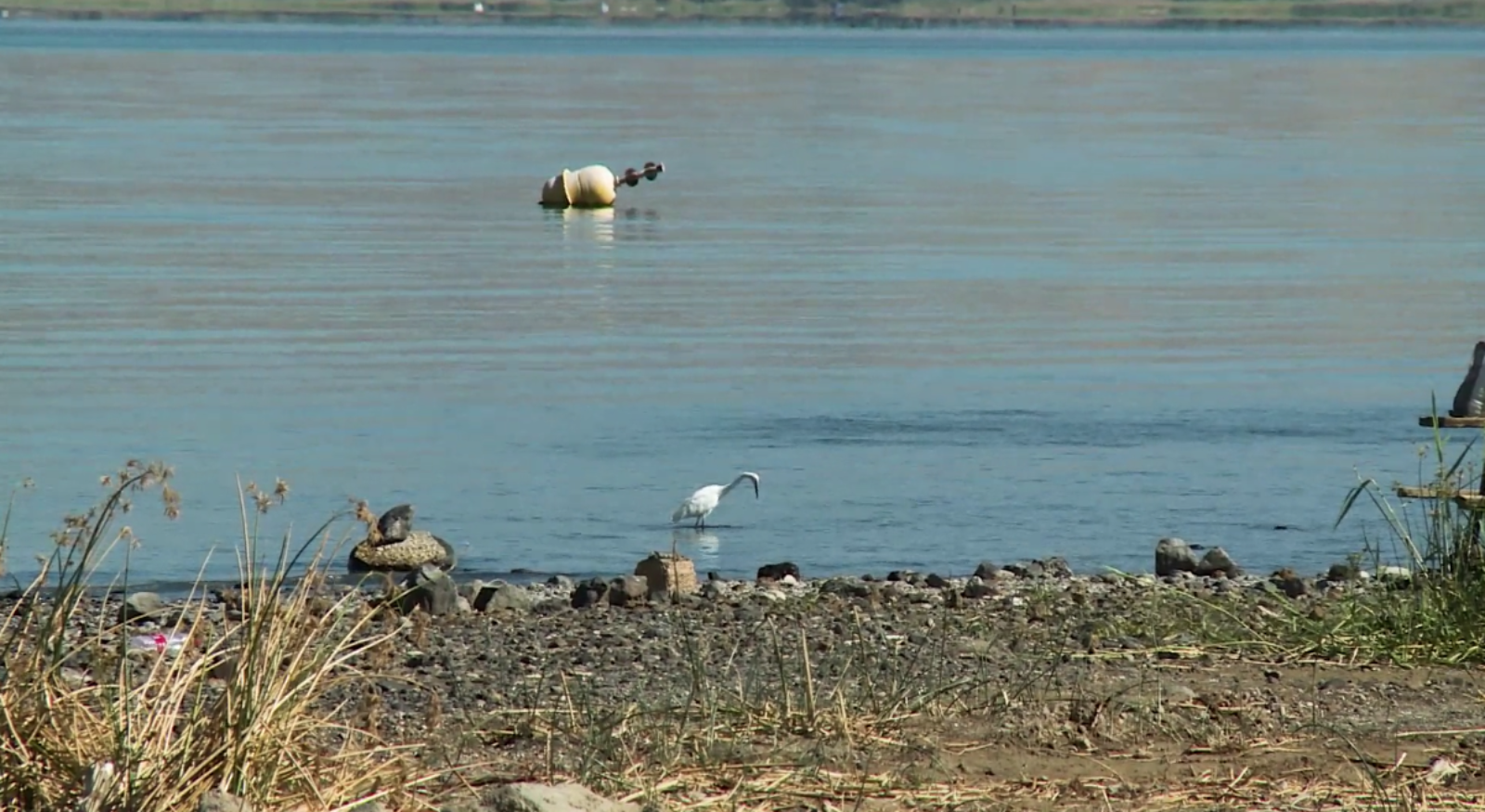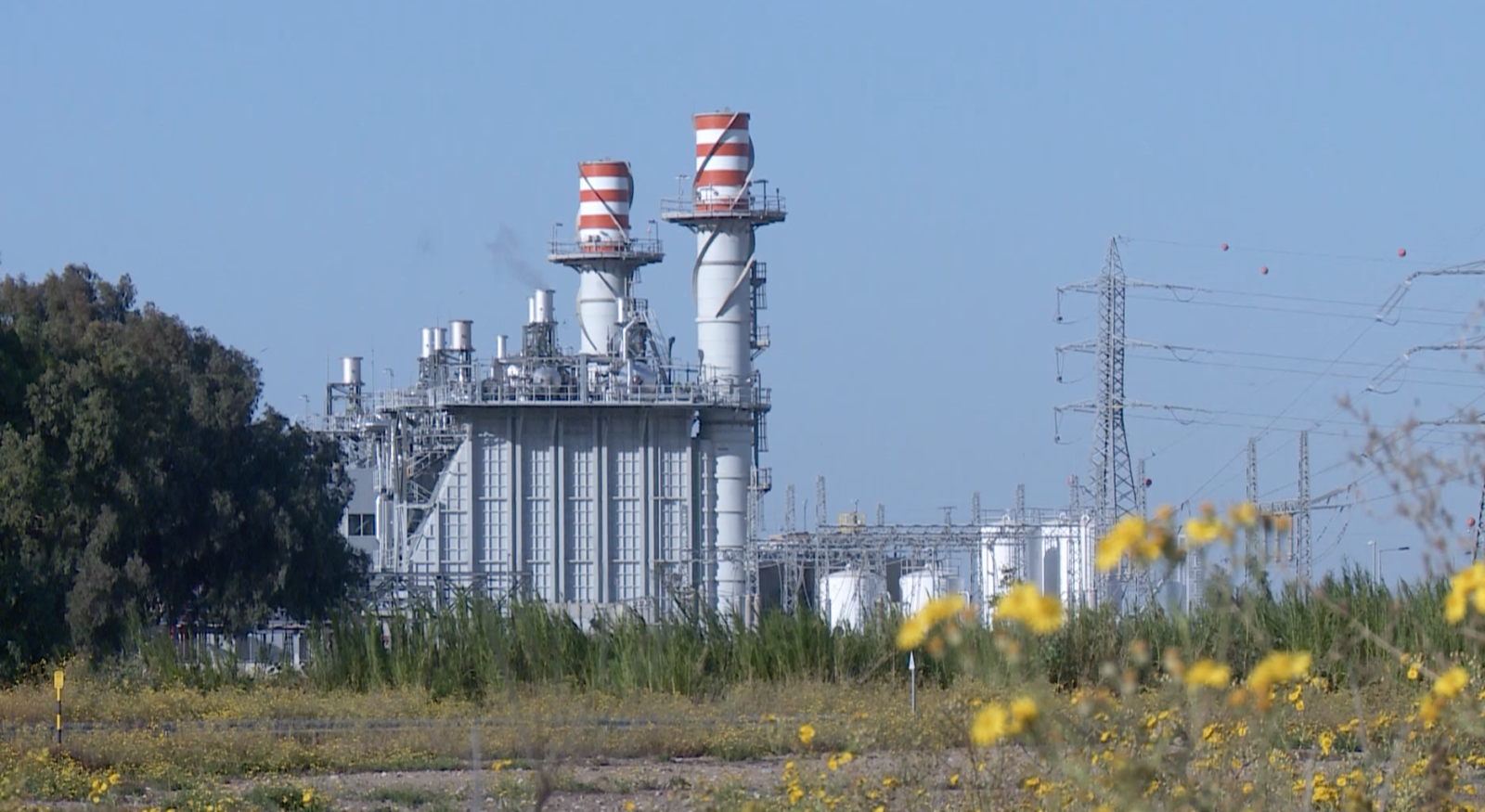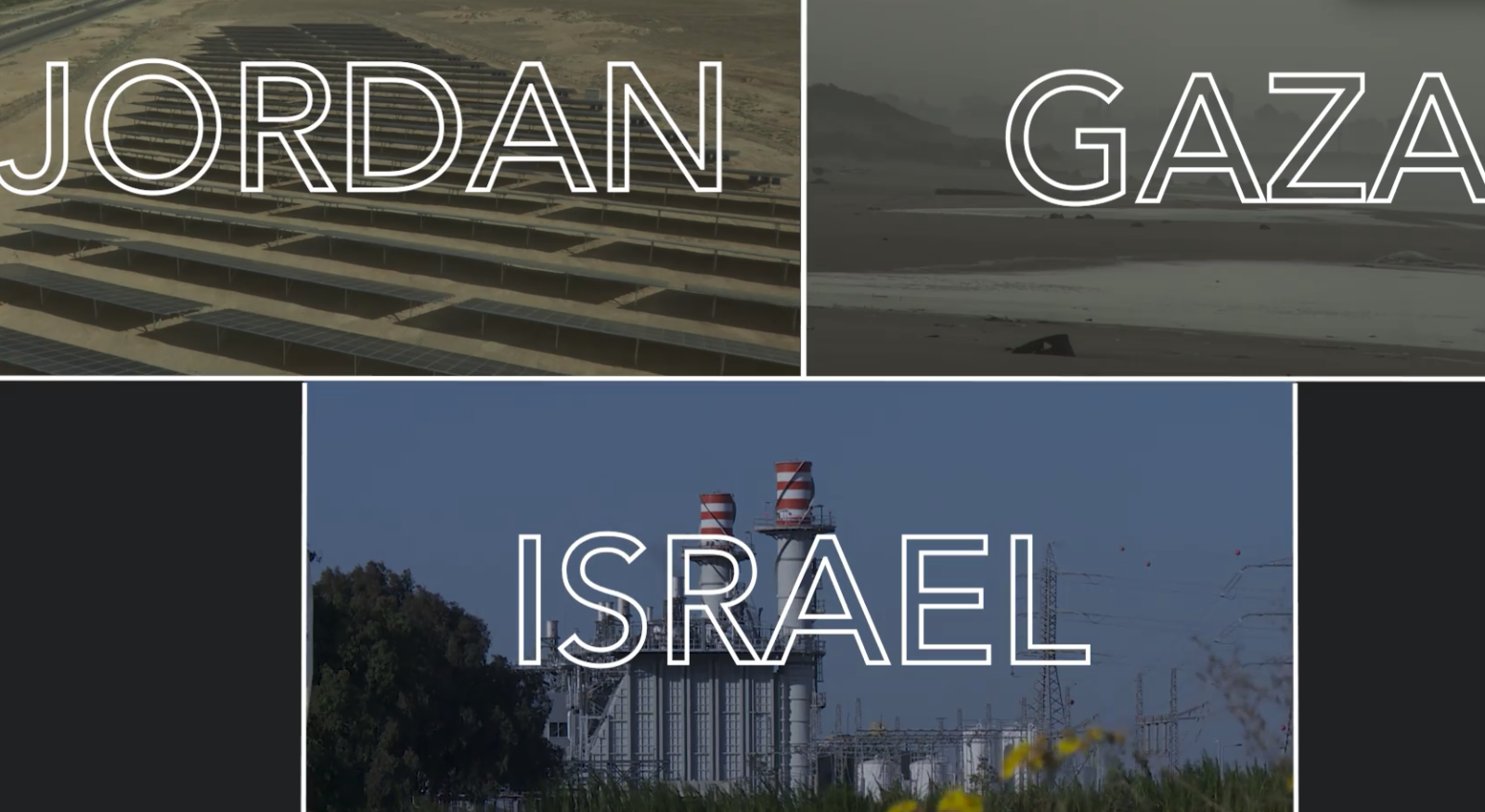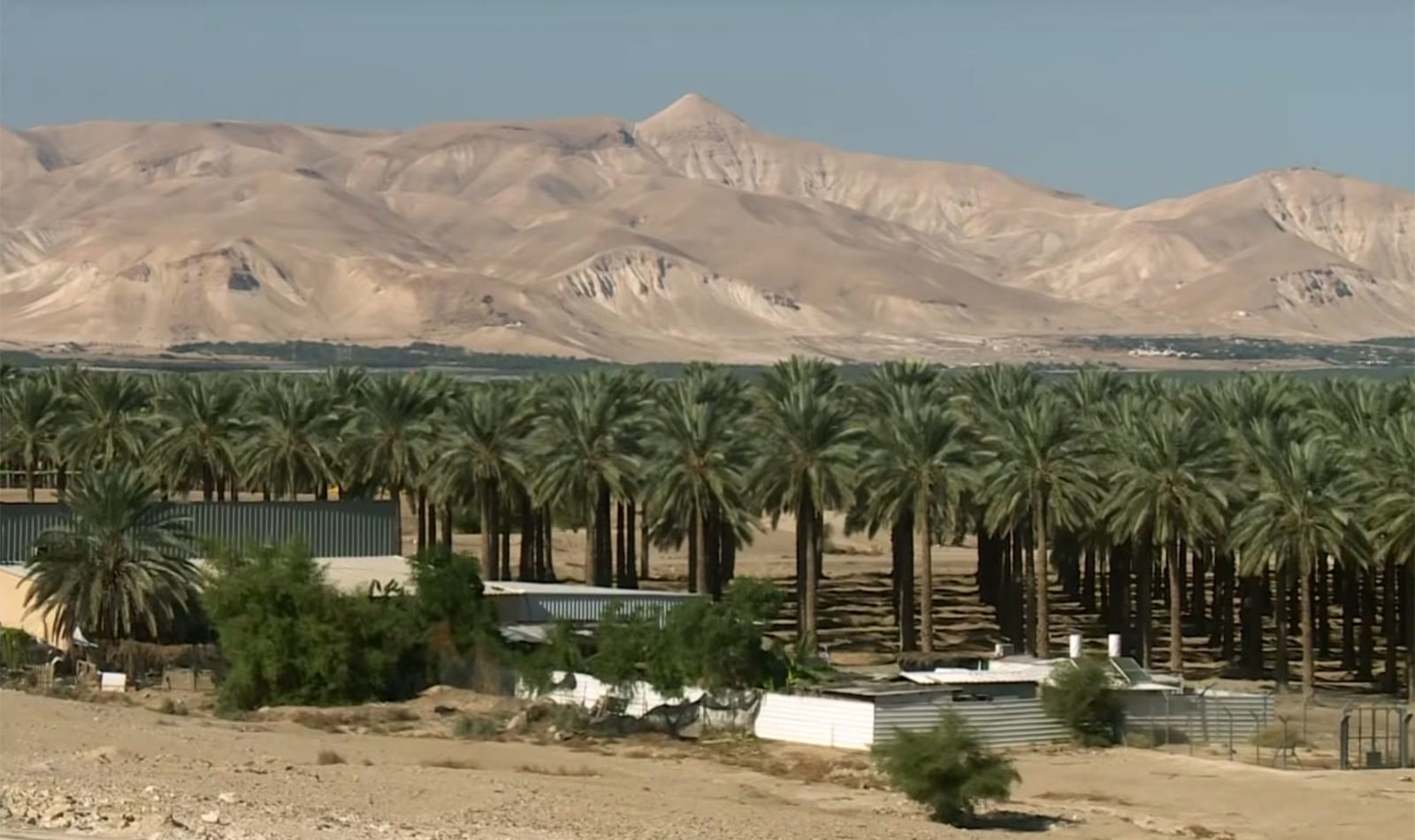Amna Nawaz:
The world is moving into a new era, when water will be a resource as prized as oil. How we manage the demand will be critical, especially in areas where water is scarce.
Fred de Sam Lazaro begins a two-part look at how the Mideast is approaching this crisis.
He begins in Israel, where technology is making all the difference.
Fred de Sam Lazaro:
Yossi Schick manages a huge date farm owned by a kibbutz, or commune; 18,000 trees produce some 1,600 tons of dates a year. They are exported around the world, but what you cannot tell is what was here before the farm.
Yossi Schick:
This used to be the dead tree, part of the dead tree. Nothing grew here before.
Fred de Sam Lazaro:
The farm is possible because, over the last two decades, Israel has become a world leader in conserving, recycling and even producing water in one of the driest places on Earth. It wasn’t like that 40 years ago, when the farm was first planted.
Yossi Schick:
The beginning, we were optimistic, but it didn’t take long before we realized that, if we want to carry on and grow, we have to change our way of thinking.
Fred de Sam Lazaro:
Now, all of the water Schick uses on his farm is recycled, treated sewage coming directly from Jerusalem some 30 miles away.
In fact, 87 percent of all sewage generated in Israel, while not fit for drinking, is recycled for use in agriculture, where it is safe.
If you were not here with this artificial system of delivering water here, what would this land look like?
Yossi Schick:
Complete desert. Nothing.
Fred de Sam Lazaro:
It’s not just recycled water. Israel also now produces most of its tap water straight out of the Mediterranean Sea.
Uri Shor:
It’s the largest plant on its kind in the world.
Fred de Sam Lazaro:
Uri Shor with Israel’s government-run water authority took me on of its five desalination plants; 85 percent of Israel’s drinking water now comes from desalination through a reverse osmosis technology whose cost have dropped in recent years.
Uri Shor:
Twenty minutes ago, this was seawater.
Fred de Sam Lazaro:
Two more plants will soon come online, all to serve a growing population and deal with the rapidly drying climate. Israel even plans to begin pumping desalinated water into what was once the region’s largest source of freshwater, but has been severely depleted by overuse and the changing climate.
I’m standing at the mouth of the River Jordan as it flows out of Lake Kinneret, the biblical Sea of Galilee. In normal times, I would be under about 12 feet of water. But these are not normal times. There has been drought here for 15 of the past 20 years.
Gidon Bromberg:
And it’s much worse than what was even being predicted.
Fred de Sam Lazaro:
Gidon Bromberg is the Israeli director of the environmental group EcoPeace that brings together Israelis, Palestinians and Jordanians to find regional solutions.
Gidon Bromberg:
The threat of climate change is so great in this region that, if we don’t work with our neighbors, then we’re also at peril.
Fred de Sam Lazaro:
Under international agreements, the Palestinian West Bank and Gaza buy most of their water from Israel. Israel has often restricted the supply, particularly in the Gaza Strip. Bromberg says the arrangement is fraught with mistrust.
Gidon Bromberg:
Dependency in the highly conflictual part of the world is not politically attractive. And, therefore, at EcoPeace, we have been trying to think of, well, how can we create interdependencies?
Fred de Sam Lazaro:
EcoPeace has proposed that Gaza, with its 25-mile coastline, also build large desalination plants with international financing.
Similarly, Jordan, with vast deserts, could supply solar energy for the entire region, including Israeli desalination plants, which now run on natural gas.
Gidon Bromberg:
We’re in the same boat. And we’re either going to float together and sail that boat literally down the Jordan, or we’re going to sink here at the Sea of Galilee.
Fred de Sam Lazaro:
For now, Israel is proceeding on its own, re-launching a conservation campaign in the media, in addition to its investment in desalination.
As for the Palestinians’ dependence on Israel for water and power, Uri Shor says Israel would like its neighbors to recycle and produce more of their own water.
Uri Shor:
For instance, if the Palestinian Authority will treat their sewage exactly like Israel, they can increase the quality of water that they have by 40 percent. It’s quite a lot.
They do not do it.
Fred de Sam Lazaro:
They do not do it because they aren’t allowed to, says former Palestinian Water Minister Shaddad Attili citing in particular Israel’s 11-year blockade of the Gaza Strip following the election there of the Islamist militant group Hamas.
Shaddad Attili:
When you find people in prisons, jail, with no water, with no electricity, with no food, with no word, there is no hope in Gaza. Our people, they are desperate.
Fred de Sam Lazaro:
EcoPeace’s Bromberg agrees conditions in Gaza are desperate.
Gidon Bromberg:
The sewage doesn’t stop in the aquifer just on the Gaza aside. It clearly contaminates the groundwater on both sides.
Fred de Sam Lazaro:
He showed me wastewater that flowed right next to the wall that separates Gaza from Israel.
Gidon Bromberg:
We have a ticking time bomb here in Gaza, where the likelihood of disease breaking out is highly likely.
Fred de Sam Lazaro:
The United Nations has concluded that, at the current rate, the Gaza Strip will become uninhabitable by 2020 because of the lack of water, sanitation and electricity.
That’s prompted a scramble by international aid groups to provide emergency assistance.
We will explore efforts by international aid agencies to deal with Gaza’s water crisis in our next report from the region.
For the “PBS NewsHour,” this is Fred de Sam Lazaro near the Israel-Gaza border.
Amna Nawaz:
Fred’s reporting is a partnership with the Under-Told Stories Project at the University of St. Thomas in Minnesota.
Water in the Desert
The Middle East is facing a water crisis, and the divisions between Israel and Palestinians have only exacerbated the problem. But whereas Israel is a pioneer in desalination and produces much of its own water, in Gaza, Palestinians struggle with access to clean water due to an Israel-imposed blockade. Special correspondent Fred de Sam Lazaro has a two-part look at water equity in the Middle East.

Drought
Water levels across Israel are at an all time low after years of drought, but for the most part, Israel has managed to stay ahead of its water crisis

Israel has 5 desalination plants
and plans to open more
But it’s not enough
The impact of climate change is being felt strongly as the drought lingers on and the rains are insufficient. Israel has managed to avoid massive shortages, but the ecological damage to freshwater sources across the entire region is extensive.

The shared crisis could become a chance to build peace
Solar, Desalination and Coast Line
EcoPeace advocates for a collaborative approach to finding solutions to the shared water crisis. Gaza, with its 25-mile coastline, could also build large desalination plants with international financing and Israeli technology. Similarly, Jordan, with vast deserts, could supply solar energy for the entire region, including the Israeli desalination plants, which now run on natural gas.

